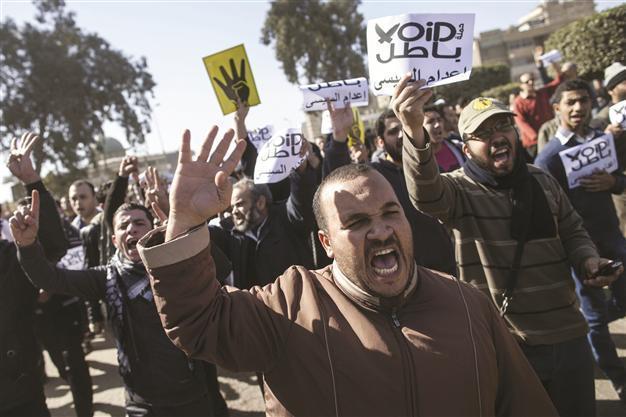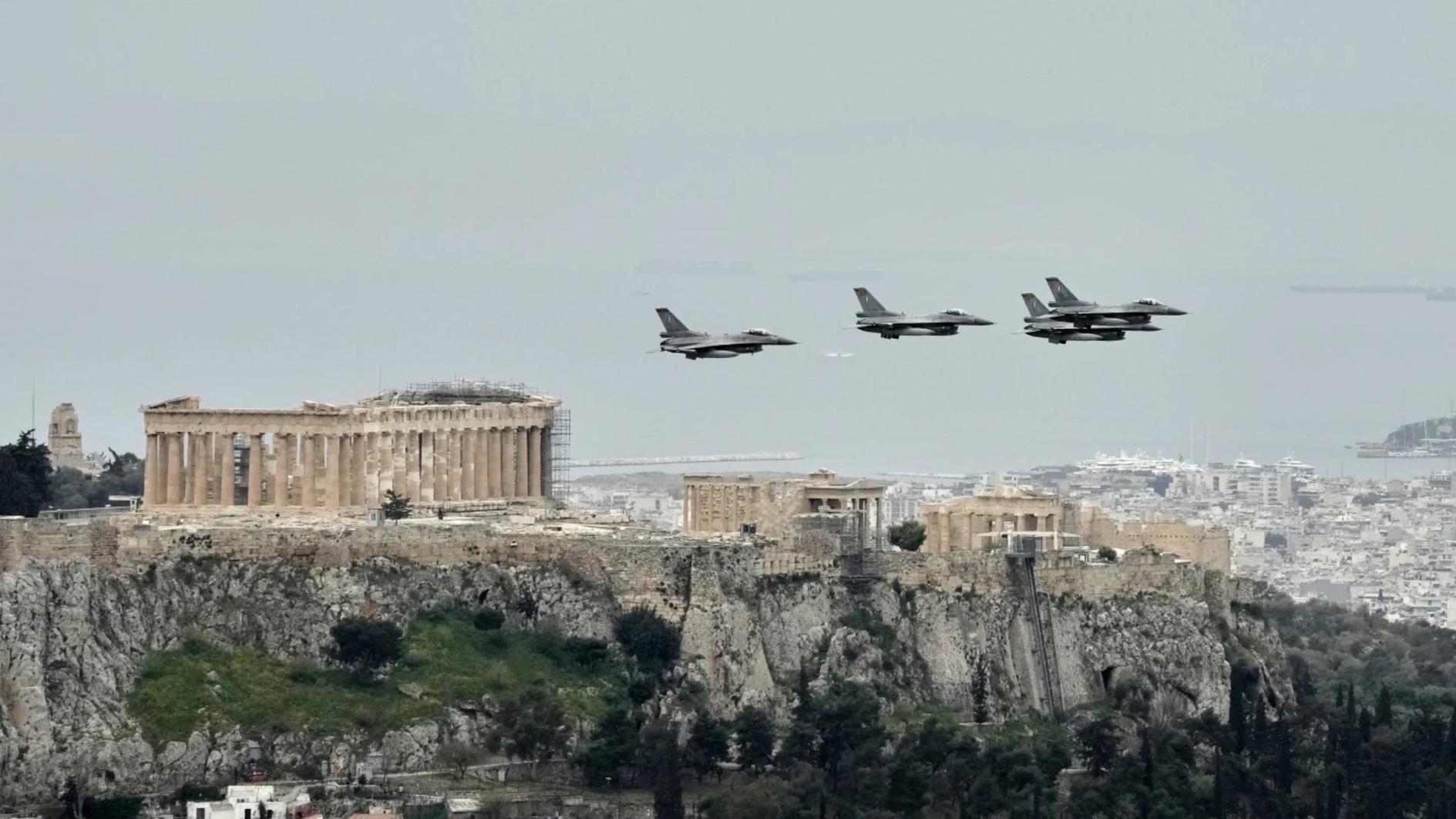The Importance of Peace, dialogue

Egyptian protesters chant slogans during a demonstration in Cairo. AFP photo
Over the past few years, we have witnessed unprecedented mass protests, uprisings and vast political change in the South-East Mediterranean region. These political developments have signified a historical turning point. Authoritarian regimes, which had prevailed for decades, are seemingly brought to an end. However, we need to bear in mind the outcome of this violent outburst is not yet sustainable, while the cost, in a human and social aspect, is disproportionately and dreadfully high. There is civil war in Syria; social unrest still persists in Egypt, while the implementation of democratic principal values is still lagging.On the contrary, in the past few days, Tunisia proceeded to significant constitutional changes, thus rendering the state among the most democratic ones, even of more democratic quality than a number of European countries. The reason behind this difference, in terms of evolvement and effectiveness, lies on the process itself. It is apparently obvious violence is not the key factor to change, even though sometimes it is proved to be unavoidable. The critical agent for benevolent and substantial evolution is dialogue and honest, mutual desire to achieve terms of consensus. Throughout modern European history, conflict had always been the outcome of unwillingness for consensus and national entrenchment. However, the cruel socio-humanitarian and economic outcomes of those conflicts became a hard learnt lesson and highlighted the imperative need of roundtables, open conversation and mutual agreements for a livable future, which followed during the years of peace.

Maria Yannakaki, Greek lawmaker
are related mostly to political imbalance, power, and potential political gains or losses. We should also consider conflict is favored and encouraged by certain interests, not purely political, which in most cases are external to the affairs of the opposing sides. In addition, economic interests indicate the cooperation of third parties with unsustainable political regimes, hampering the well-being of the citizens or even leading to their exploitation, thus indirectly enlarging the causes that lead to conflict.
The same outcome could also be attained by the unconcern of the cooperating party to the internal, yet important, affairs of the other. For instance, during the last decade, European policy-makers seem to have equated stagnation with stability in the South East Mediterranean region, choosing to cooperate with autocratic regimes. Political reform and human rights were sidelined, while issues such as combating terrorism and containing migration dominated the policy agenda. If the EU had gradually pushed toward the direction of human rights and political reform, the outcome might had been different, or at least with milder aftermath.
Therefore, we may observe multiple reasons that lead to and sustain conflict. Nevertheless, we need to make a distinction between conflict that leads to violence and conflict that leads to development. A conflict has its own life cycle, almost like something organic. It appears, it reaches an emotional, even violent, climax, and then it tapers off and disappears. The crucial element in this cycle is to avoid the violent outbreak as it leads to meta-violence, but instead to promote development.
Keeping in mind the codependent origination and the mutual ground of disputes, dialogue appears as the ultimate and the most beneficiary tool for resolving conflicts and transforming them to an opportunity for long-lasting development. In this sense, a realistic approach towards achievable solutions abstracts the negative influence of third interests that encourage violence and prevents the devastating outcomes of the latter.
In this context, the participation of international institutions in resolving conflicts peacefully becomes essential, as the conceptualized corresponding experience becomes the mean through which the desired outcome is achieved.
However, it is clear the global political arena is quite premature –or rather reluctant– to allow for a more sophisticated approach on resolving disputes, while the various forms of interests perplex the corresponding processes and policies. Yet, the cost of violent conflicts in terms of human lives and social trauma is such, any alternative to the scheme of a peacefully resolved conflict that leads to development, seems irresponsible and unreliable in its sustainability.
We need to make a distinction between conflict that leads to violence and conflict that leads to development. A conflict has its own life cycle, almost like something organic. It appears, it reaches an emotional, even violent, climax, and then it tapers off and disappears. The crucial element in this cycle is to avoid the violent outbreak as it leads to meta-violence.
















